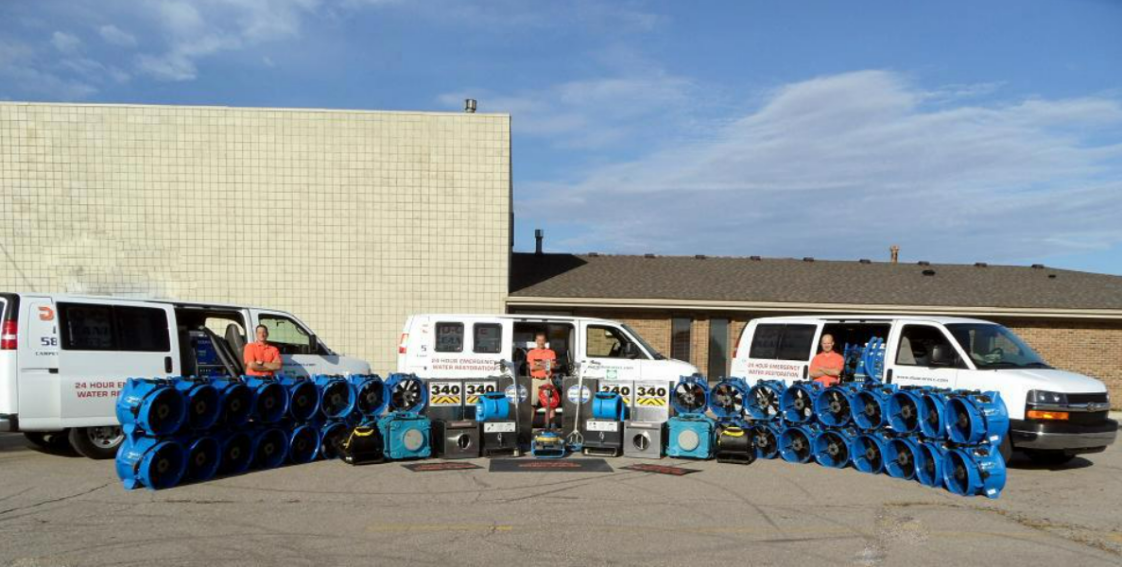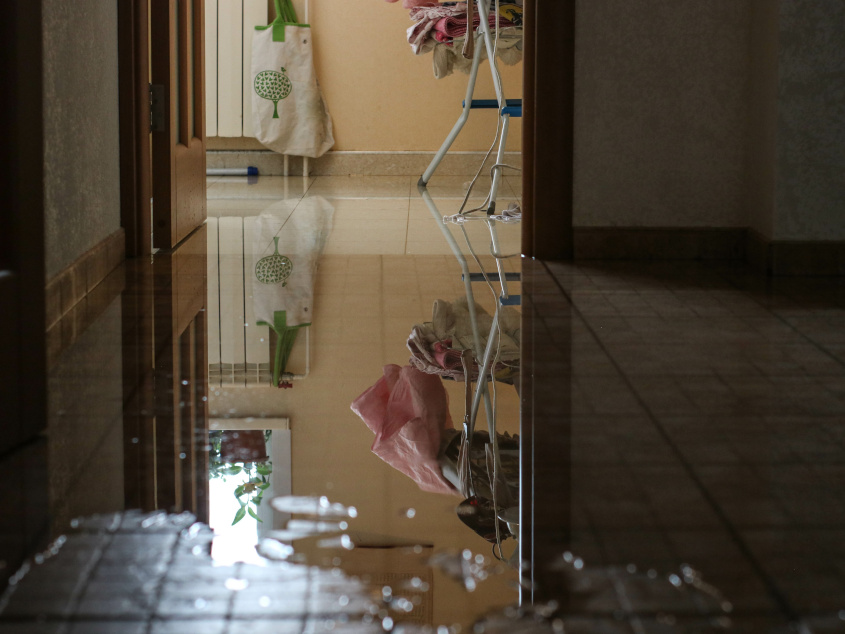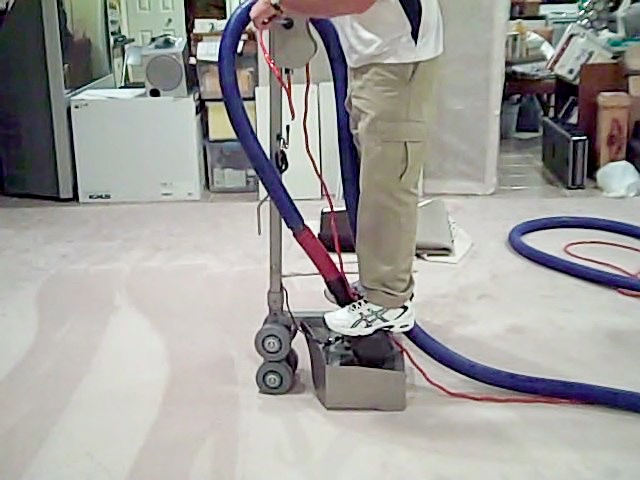
Damage Mitigation Preperation
- What Is Considered a “Flood?”
- Common Causes of House Floods
- How to Prepare for a Flood
- What to Do After a Flood
- Signs You Need Water Remediation
- Help Restoring Your Home
Few experiences are as stressful and worrisome for homeowners as encountering flood damage. Mold, odors, ruined furniture, waterlogged belongings, and structural, foundation, and electrical damage are expensive problems that can take weeks and months to repair. However, it’s important to know that can do something about it and take proactive steps to prevent extensive damage.
In this article, we’ll define what the term “flood” means by insurance standards, how to prevent and prepare for flood damage, what to do after a flood, and when to call a remediation specialist like Duo Care.
What Is Considered a “Flood?”
On its own, the word “flood” is generic. However, insurance companies don’t see it that way, so it’s critical to understand what your policy covers. In most cases, insurance companies don’t view floods as a type of water damage.
A flood, as defined by insurance standards, is typically described as a sudden and unforeseen inundation or accumulation of water (two or more acres) across normally dry land. In some cases, insurance companies may expand the definition to include damage to multiple (more than two) properties. A flood doesn’t have to be caused by a natural disaster to qualify for flood insurance coverage—sewage backups, plumbing issues, and other situations are often covered by flood insurance.
Common Causes of House Floods
There are many potential causes of house floods. Insurance companies will often list what they consider qualifying causes. Their list might include storm surges, melting ice and snow, extended rainfall, and broken levees or dams. However, other causes of house floods could be listed in your insurance policy. These are provided below with brief explanations:

- Damaged or Broken Pipes: This is primarily a concern in some older homes and can occur under extreme weather. The freeze/thaw of winter can damage pipes and lead to extended flooding.
- Obstructed Gutters/Poor Drainage: When gutters are clogged, the water is forced to the outer edges of your home’s gutters and siding. Eventually, the water builds up around your house, leading to foundation issues.
- Appliances: Depending on the severity, a ripped or torn hose or broken valve on older appliances, like dishwashers or washing machines, can quickly cause water or flood damage.
- Cracked Foundation: If your foundation is damaged, water can seep through the cracks and walls.
- Elevation of Your Home: A home at the base of a slope is often at risk of yearly flood damage from winter thaw.
- Plumbing: Bad plumbing can instantly lead to extended water or flood damage, especially if it comes from your home’s second or third floor.
Preventing Water & Flood Damage & How to Prepare for a Flood
Despite the damaging effects of floods, there are some actions you can take to protect your home.
- Invest in Flood Insurance: This type of insurance is especially critical if your home is in a flood zone. Don’t make the all-too-common mistake of assuming that flood insurance is a standard coverage simply because of where you live. Most homeowners insurance policies do not include flood insurance.
- Schedule Annual Plumbing Inspections: Routine plumbing inspections will help you avoid costly problems and are extremely important for older homes.
- Fix Foundation Issues: If your home’s foundation is damaged, it should be repaired as soon as possible. A damaged foundation will only lead to more costly expenses down the road. It’s also important to ensure your home has adequate drainage, especially if it’s located at the bottom of a downward-facing slope.
- Clean Gutters: Add gutter cleaning to your home maintenance plan. Removing debris like twigs, animal nests, and leaves should be done at minimum twice a year in the spring and fall. When debris is allowed to build up inside the gutters, it will cause drainage issues, which will eventually lead to water damage.
- Turn Off Supply Lines: It’s best practice to turn off supply lines to outside spigots in the winter to avoid them freezing over. Frozen pipes can explode and cause potential water or flood damage.
- Protect Valuable Items: Keep your valuables, including important documents and heirlooms, in easily accessible waterproof storage containers.
- Have Emergency Items on Hand: Always have a first-aid kit ready to go, and create an emergency plan with your family to ensure everyone understands their role in an emergency like a flood.
- Create an Inventory: Over time, build an inventory of valuable items in your home. That way, if you experience water or flood damage, you’ll have a list of items that may need replacing. If possible, include the pricing or value of each item.
- Create a Vacation Checklist: Finally, create a list of tasks to complete before leaving for a vacation, even if it’s just a weekend getaway. Accidents like leaving the water running or letting the dishwasher and washing machine run unsupervised can have devastating effects.
What to Do After a Flood
Let’s assume you’ve experienced a flood. What do you do now? Ultimately, your actions depend on the type of damage you’ve experienced. To help, here are two scenarios and the simple steps you can take to mitigate the damage.
Flood/Water Damage Due to Plumbing
- Turn off Water Supplies: Find the source of the water damage and turn off any supply lines. As a homeowner, you should always be able to locate your water main in case of emergencies. If you’re unsure where the water is coming from, turn off your water main.
- Shut Off Electricity: Turn off electricity to items in and around the flooded area. Do not do this if you’re forced to stand in the water. Call an electric company or electrician if the water damage is this severe.
- Soak Up As Much Water as Possible: If it’s safe to do so, you will need to soak up as much of the water as possible. You can do this with towels, absorbent cloths, and wet/dry vacuums.
- Contact a Plumber: If you haven’t identified what caused the water damage or cannot fix it, contact a plumber to fix broken pipes, replace worn-out O-rings, replace damaged supply lines, etc.
- Contact a Remediation Specialist: If the water damage is so severe that it has extended across an entire room or area, such as your basement, you may need to call an IICRC-certified remediation specialist.
- Call Your Insurance Agent: Finally, call your insurance agent to begin the claims process. They may have guidance and tips to help you during this period.
Flood Caused by a Natural Disaster
- Leave Your Home if It’s Severe: Ultimately, the actions you take depend on the severity of the flooding and natural disaster you’re experiencing. Use your best judgment. If the flooding or natural disaster is severe and you’re still in your home, then your primary responsibility is to ensure you and your loved ones exit the home immediately.
- Find a Safe Location: Find a safe location away from the flooded area(s) and wait until authorities say it’s safe to return.
If the flooding isn’t severe and you have some time before you leave your home:
- Gather Important Belongings: Although you may be tempted to grab your favorite Elton John CD or your autographed book, please go for important documents first, like tax returns, house deeds, marriage certificates, mortgage documents, Social Security cards, and passports. Having all of your valuable items and documents together in one place (preferably in a waterproof container) will make this part easier, and give you more opportunity to collect other meaningful items.
- Turn off Electricity: If it’s safe to do so, turn off all electricity to your home.
- Leave Your Home: If authorities declare the situation an emergency and recommend finding a safer location, leave your home and get as far away from the flooded area as possible.
- Contact Insurance Company: Once you are clear of the area, you should contact your insurance agent and explain your situation to them. They can provide guidance on next steps and even recommend remediation specialists.
- Repair Damage: Once authorities have declared it safe to return, the next step is repairing any damage. A remediation specialist can help you with this.
Signs Water Remediation Is Needed

Extensive water damage is relatively easy to spot. If any of the following points are noticed, then you need to contact a remediation specialist:
- Buckling or depressed floors
- Peeling or bubbling paint or wallpaper
- Brown or rusty water rings on the floor or walls
- Sagging ceilings
- Moldy smell or actual mold growth
- Cracks in the wall or other deformations
- Weakened drywall (soft to the touch)
- Stains on the walls and floors
Restore Your Home With Help From Duo Care
Founded over 40 years ago, Duo Care is a family-owned and -operated company specializing in carpet cleaning and water remediation. Since our founding, we’ve helped countless homeowners in Michigan mitigate water damage caused by natural disasters, burst pipes, and appliance failures. We’re IICRC-certified to ensure quality and provide a 100% satisfaction guarantee on all jobs.
If you have experienced water damage and need a trusted, valued partner to help you, call (586) 263-9930 to schedule emergency services.
